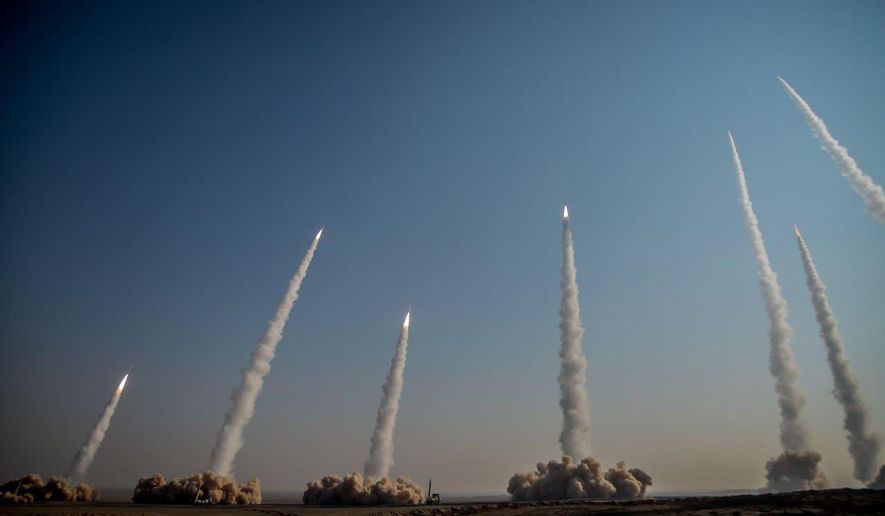President Biden should retain the Trump administration’s sanctions on Iran’s expansive ballistic missile programs even as it reaches out to Tehran to rejoin the 2015 Iran nuclear deal, a leading conservative think tank said in a new report Tuesday.
The Foundation for Defense of Democracies (FDD) study pointed out that the Obama-era Joint Comprehensive Program of Action noted the JCPOA imposes no limits on Iran’s missile program and instead allows U.N. restrictions on it to expire in 2023. Between 2015-2018, the period the U.S. participated in the deal before President Trump took the U.S. out, Iran launched at least 27 ballistic missiles as part of testing or military operations, according to the FDD.
In talks that resumed Tuesday in Vienna, Iran is demanding the lifting of all of the thousands of sanctions Mr. Trump reimposed after repudiating the deal, arguing the lifting of sanctions was the reason it agreed to curb its nuclear programs and allow in international inspectors. The Obama administration argued it was better to prevent Iran from becoming a nuclear power before turning to the question of Tehran’s missile arsenal and other threats to the region.
“Last year, the clerical regime fired ballistic missiles at military bases in Iraq housing American personnel. Iran’s terrorist proxies use Iranian-supplied ballistic and cruise missiles and unmanned aerial vehicles (UAVs) to target and harass U.S. forces and allies across the Middle East,” wrote the report’s authors, Richard Goldberg, Matthew Zweig, Behnam Ben Taleblu and Saeed Ghasseminejad.
The report argued that missiles offer Iran a cheap, long-range alternative for military aircraft, which are harder to procure due to sanctions, and can be used to carry nuclear weapons or other weapons of mass destruction. Iran’s ballistic missiles are “inherently capable of delivering WMDs,” according to the study.
Some of Iran’s missiles can travel at least 1,200 miles, giving the Islamic Republic the ability to strike American bases and allies across the region and targets in Europe as well. Iran also has resumed its cooperation with North Korea on the development of long-range missile systems. Iran also has supported the missile capabilities of nearby neighbors like the Bashar Assad regime in Syria, Lebanon’s Hezbollah and the Houthi rebels in Yemen, the FDD reported.
“Congress should send a resolute and bipartisan message to the Biden administration: Regardless of where members stand on the JCPOA, an overwhelming number of legislators agree that no missile-sanctions relief should be provided to Iran as part of rejoining the agreement,” the study said.
• Mike Glenn can be reached at mglenn@washingtontimes.com.




Please read our comment policy before commenting.